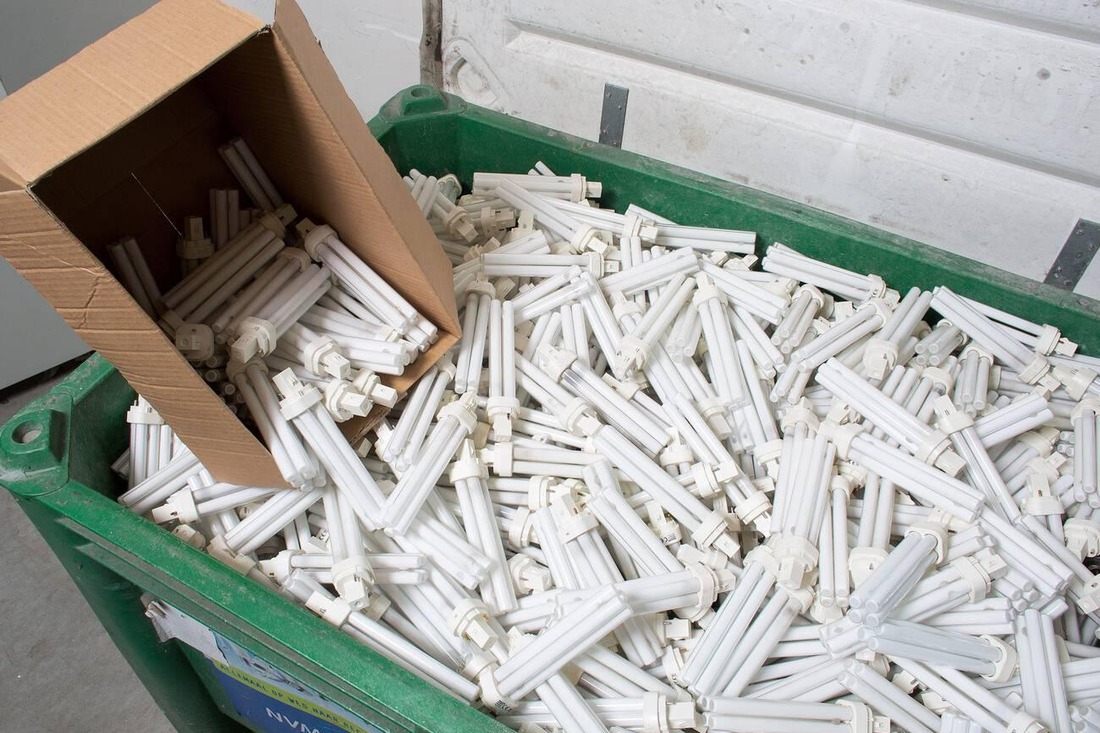Introduction to Mercury Recycling
Mercury recycling is essential for businesses aiming to reduce environmental impact, enhance sustainability, and avoid the risks of hazardous waste. Mercury, a highly toxic element, is found in various products and equipment commonly used in industries, posing potential health and ecological risks if improperly handled or disposed of. This guide explores everything a business needs to know about mercury recycling, from the benefits and legal considerations to the practical steps and challenges involved.
Importance of Mercury Recycling for Businesses
Recycling mercury not only safeguards the environment but also enhances a business’s reputation for sustainable practices. Mercury is known for its toxic properties, which can damage ecosystems and human health. When businesses recycle mercury-containing products, they help reduce the release of this harmful substance into the environment. Additionally, mercury recycling often aligns with regulatory requirements, helping businesses avoid fines and improve operational safety.
What is Mercury, and Why is it Hazardous?
Mercury is a heavy metal that exists in liquid form at room temperature and is commonly used in various industrial applications. It is classified as hazardous due to its ability to accumulate in living organisms and ecosystems, leading to mercury poisoning. Exposure to mercury can cause neurological, respiratory, and developmental issues in humans, and it significantly impacts wildlife. Proper disposal and recycling of mercury-containing items are essential to prevent these adverse effects.
Key Sources of Mercury in Business Operations
Common Business Equipment Containing Mercury
Mercury is often found in several types of equipment widely used across various industries. Some common sources include:
- Fluorescent and compact fluorescent lights (CFLs): Widely used for their energy efficiency, these bulbs contain mercury vapor.
- Thermostats and thermometers: Older models often contain mercury to measure temperature.
- Switches and relays: Found in machinery and appliances, certain electrical components rely on mercury for function.
- Dental amalgams: Dentists commonly use mercury in amalgam fillings, contributing to mercury waste in the healthcare sector.
Mercury Emissions and Environmental Impact
Improper disposal of mercury can lead to contamination of water bodies and soil, affecting entire ecosystems. Mercury emissions are primarily airborne but can settle in water, where microorganisms convert it into methylmercury—a toxic form that accumulates in fish and poses risks to animals and humans higher up the food chain. By implementing mercury recycling measures, businesses reduce their environmental footprint and prevent toxic emissions.
Regulatory Compliance for Mercury Handling and Disposal
National and International Regulations on Mercury Disposal
Countries worldwide enforce strict guidelines on mercury disposal to protect public health and the environment. Key regulatory frameworks include:
- EPA (Environmental Protection Agency) guidelines: The U.S. EPA oversees mercury waste management, requiring specific handling and disposal procedures for mercury-containing products.
- Basel Convention: This international treaty regulates the cross-border movement of hazardous waste, including mercury, and promotes waste reduction practices.
- Minamata Convention on Mercury: An international treaty focused on reducing mercury pollution, the Minamata Convention sets standards for mercury use and disposal, aiming to phase out non-essential uses of mercury.
Importance of Regulatory Compliance for Businesses
Compliance with mercury disposal regulations is vital for businesses to avoid legal repercussions, such as fines and shutdowns. By adhering to these standards, companies demonstrate commitment to environmental stewardship, which can enhance public perception and improve trust with consumers and partners.
Step-by-Step Guide to Mercury Recycling
Identification of Mercury-Containing Products
The first step in mercury recycling is identifying which products contain mercury. Business owners should inventory equipment and products to identify potential mercury sources. Items like older thermostats, fluorescent lamps, and certain medical equipment should be marked for careful disposal or recycling.
Safe Collection and Storage Methods
To avoid exposure and contamination, businesses should follow specific protocols for collecting and storing mercury waste:
- Seal the mercury-containing products in leak-proof containers.
- Label containers clearly with “Hazardous Waste” and ensure employees are trained in proper handling procedures.
- Store in well-ventilated areas away from heat sources, as mercury vaporizes at room temperature.
Transportation Guidelines for Mercury Waste
Transporting mercury waste requires specialized containers and often permits. Businesses should contract with certified waste transporters who follow EPA and DOT guidelines for hazardous materials.
Choosing a Certified Mercury Recycling Partner
Selecting a reliable recycling partner is essential. Look for recyclers certified by organizations such as R2 (Responsible Recycling) or e-Stewards, which ensure safe recycling practices and compliance with environmental regulations. A certified recycler will handle transportation, processing, and disposal according to legal standards, relieving businesses of this complex responsibility.
Benefits of Mercury Recycling for Businesses
Environmental Benefits
By recycling mercury, businesses contribute to environmental conservation, protecting water, soil, and air from contamination. Mercury recycling reduces the release of toxic substances into the ecosystem, helping preserve biodiversity and mitigate the risk of mercury bioaccumulation in the food chain.
Economic and Brand Benefits
Recycling mercury can be cost-effective, helping businesses reduce waste management expenses. Furthermore, companies that commit to sustainable practices often attract environmentally conscious consumers. Adopting mercury recycling initiatives can strengthen a business’s brand reputation, build consumer trust, and differentiate the company from competitors.
Challenges and Risks in Mercury Recycling
Common Obstacles in Mercury Recycling
Businesses face several challenges when recycling mercury, such as identifying all sources of mercury, managing waste safely, and ensuring compliance with disposal regulations. Additionally, smaller companies may find the cost of recycling programs prohibitive without assistance.
Risk Management and Safety Considerations
Mercury recycling requires stringent safety measures to avoid exposure to hazardous materials. Employees handling mercury should receive specialized training, and businesses should invest in personal protective equipment (PPE), spill kits, and emergency procedures to mitigate risks.
Case Studies: Successful Mercury Recycling Programs
Examples of Businesses Implementing Mercury Recycling
Several companies have made significant strides in mercury recycling. For example, large retailers like IKEA and Home Depot have implemented take-back programs to collect and recycle mercury-containing bulbs from customers, significantly reducing environmental impact.
Lessons Learned from Case Studies
Case studies reveal that effective mercury recycling requires strong partnerships with certified recyclers, employee training, and consumer education. Businesses that educate their customers and employees about proper disposal methods tend to achieve better recycling outcomes and improve community relations.
Future of Mercury Recycling and Sustainability Trends
Emerging Technologies in Mercury Recycling
Innovations in mercury recycling technology aim to improve the efficiency of mercury recovery processes. New filtration and chemical processing technologies help separate mercury from waste materials more effectively, potentially reducing recycling costs and improving scalability.
The Role of Businesses in Promoting Sustainable Recycling
As sustainability becomes increasingly important, businesses have a pivotal role in promoting recycling practices. By adopting mercury recycling, companies not only enhance their environmental commitment but also contribute to broader sustainability efforts that align with global environmental goals.
FAQs
What is Mercury Recycling?
Mercury recycling is the process of recovering mercury from products to prevent environmental contamination. The recovered mercury is purified for reuse or safe disposal.
Is Mercury Recycling Required by Law?
Yes, many countries have laws mandating proper disposal and recycling of mercury to prevent environmental harm. Businesses must comply with these regulations to avoid penalties.
How Can I Find a Mercury Recycling Partner?
To find a certified mercury recycling partner, check for companies listed by organizations like the EPA or regional environmental authorities. Ensure they hold the necessary certifications.
What Happens to Recycled Mercury?
Recycled mercury is often purified and repurposed for industrial use. When reuse isn’t feasible, it is safely contained and stored to prevent environmental release.
How Can Businesses Safely Store Mercury Waste?
Businesses should store mercury waste in sealed, labeled containers in well-ventilated areas. Employees should be trained on handling procedures to ensure safety.
Are There Financial Incentives for Mercury Recycling?
Some governments and organizations offer incentives for businesses that recycle mercury, including tax benefits and grants for sustainable practices.




